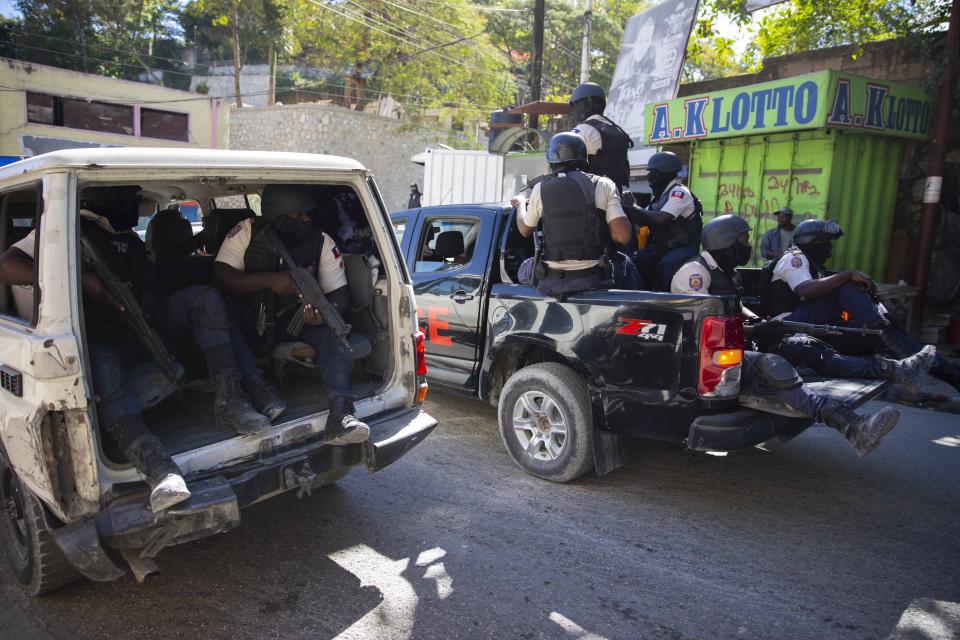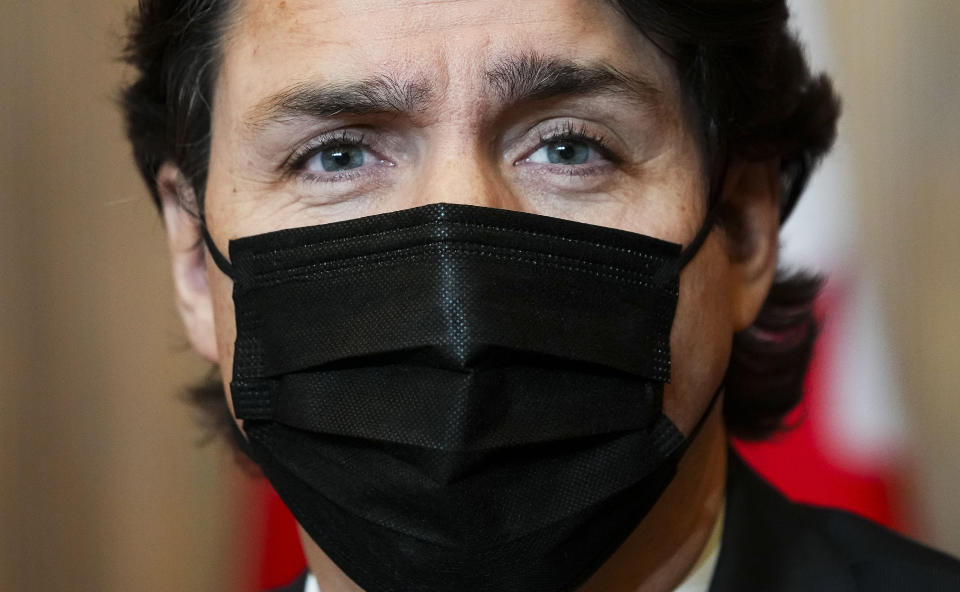Canada, US and allies talk aid for Haiti at meeting
TORONTO (AP) — Haiti’s spiraling insecurity and growing concerns about its ability to hold general elections following the killing of President Jovenel Moïse prompted two dozen international senior officials to meet Friday and agree to increase aid.
Canada, which hosted the more than three-hour-long meeting with representatives from countries including the U.S., France and Mexico as well as U.N. officials, pledged $39 million in aid while other countries promised to improve Haiti’s security situation so it could hold successful elections. They also committed to bolstering Haiti's National Police as violence spikes and gangs become more powerful, with more than 20,000 Haitians forced to live in unhygienic shelters amid the pandemic after losing their homes in recent months to gang turf battles.
“The increase in violence is only worsening the already precarious humanitarian situation,” said Canadian Prime Minister Justin Trudeau ahead of the meeting, which was behind closed doors. “We must work together to restore stability, and to protect the safety and well-being of the Haitian people.”
Representatives of 19 countries took part, including Haitian Prime Minister Ariel Henry, U.S. Deputy Secretary of State Wendy Sherman and French Foreign Minister Jean-Yves Le Drian.
“In order to tackle insecurity, the partners agreed to strengthen their current and future support of the security sector, including the Haitian National Police, with a focus on respect for the rule of law, justice and human rights,” the office of Canadian Foreign Minister Mélanie Joly said in a statement after the meeting.
Joly said all stakeholders in Haiti need to work together and “that without such an agreement, re-establishing security will remain a challenge, as will the holding of free and credible elections.”
Henry, Haiti’s prime minister, said he expects to have a provisional electoral council in place in upcoming days and has pledged to hold elections this year, although he has not provided a date. He thanked the international community for helping Haiti during “a particularly trying time” and noted that violence was considerably disrupting everyday life and isolating several cities and towns in the southern part of the country, cutting off much needed aid.
“There is an urgent need to address these problems and find lasting solutions,” he tweeted during the meeting. “I am convinced that the root cause of such a situation lies mainly in the abject poverty in which a significant part of our population lives.”
Haiti is a country of 11 million inhabitants where about 60% earn less than $2 a day, and it is facing a deepening economic crisis, with inflation spiking and an estimated 4.4 million people at risk of hunger. It is also struggling to recover from the July 7 assassination of Moïse at his private residence and a 7.2 magnitude earthquake that struck last August, killing more than 2,200 people and destroying or damaging some 137,500 homes.
Moïse’s killing complicated an already fragile political situation in Haiti.
He had been ruling by decree for more than a year after dissolving a majority of Parliament in January 2020 amid a delay in legislative elections that have yet to be held, with only 10 senators currently in power.
Opponents, meanwhile, claimed that Moïse’s own term should have ended in February 2021, while he insisted it should continue to Feb. 7 this year — the fifth anniversary of his inauguration, which had been delayed by controversy over his election.
Some worry Haiti’s instability will deepen in early February when the term of the slain president expires. Shortly before his death, Moïse had tapped Henry to serve as prime minister and many observers think that Henry’s term should end on Feb. 7 as well, though he is not expected to step aside on that date.
An official that attended the meeting said there was no discussion about possible foreign intervention or about the confidence that ministers might have in Henry’s ability to govern.
Many parts of Haitian civil society are calling for accords that would allow for a consensual leadership of the country while it waits to renew its institutions through elections — though various factions differ on what the accord should contain.
Jean Victor Généus, Haiti’s foreign affairs minister, met with reporters in Haiti after the meeting and praised the offers of help from the international community, saying that a stabilized Haiti also would attract investors.
___
Associated Press reporter Evens Sanon in Port-au-Prince, Haiti contributed.

 Yahoo Movies
Yahoo Movies 

